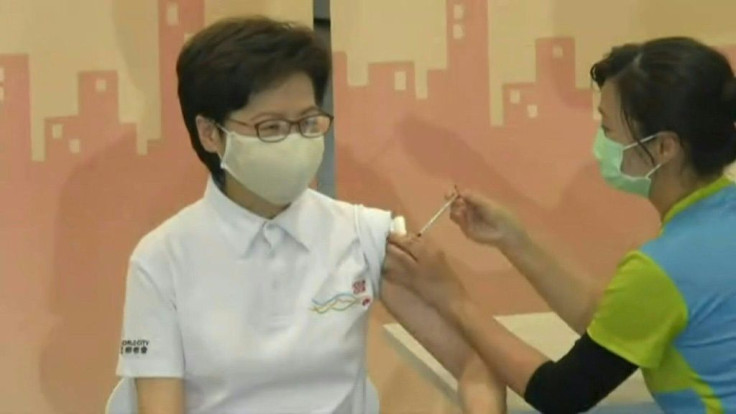Which COVID-19 Vaccine Is Better And More Effective? Pfizer, Moderna Or AstraZeneca
KEY POINTS
- The FDA has approved two COVID-19 vaccines for use in the U.S.
- The Pfizer-BioNTech COVID-19 vaccine has a 95% efficacy rate
- Moderna's vaccine offers 94% protection against the virus
- AstraZeneca has been approved for use in the U.K. with 60% effectivity
[The article has been updated to clarify that the COVID-19 vaccine from AstraZeneca has not yet received approval from the U.S. FDA as erroneously stated in an earlier version.]
Coronavirus vaccines are the world’s biggest hope in getting ourselves out of the deadly pandemic that has forced businesses to close, airline flights to remain on the ground, and people to hunker down in order to avoid various degrees of illness.
The U.S. Food and Drug Administration has approved two COVID-19 vaccines for use in this country: one from Moderna, another from Pfizer-BioNTech. A third vaccine, from AstraZeneca-Oxford, has been approved for use in the U.K., but not in the U.S.
Each of these vaccinations require two doses, usually injected into the muscle of the upper arm. Here, we've gathered some key information about them.
Pfizer-BioNTech
Pfizer’s BNT162b2 vaccine uses pieces of genetic material (mRNA) instead of virus particles to trigger an immune response.
Each dose is given 21 days apart and is available to people age 16 and above. Pfizer’s vaccine was found to be 95% effective against the coronavirus. Patients develop protection against the virus 12 days after the first dose or seven days after the second shot.
Patients who suffer from anaphylaxis to ingredients such as PEG or polysorbate are not advised to take the Pfizer vaccine. Typically, allergic reactions have emerged after the first dose.
Pfizer and BioNTech’s vaccine has not been tested against real-world coronavirus variants. However, it provided some protection against a pseudovirus that resembles the South African variant.
Moderna
Moderna’s mRNA-1273 resembles Pfizer and BioNTech’s vaccine. However, each dose is given 28 days apart and only to people ages 18 and above. Like with the Pfizer vaccine, patients who suffer from anaphylaxis to ingredients such as PEG or polysorbate are not advised to take Moderna’s vaccine.
Moderna’s coronavirus vaccine has an efficacy of 94%. Patients begin developing protection against COVID-19 to weeks after the initial shot or 14 days after the second dose.
The mRNA-1273 vaccine has not been tested against real-world COVID-19 variants. It worked well against pseudo viruses similar to the U.K. and the South African variants.
AstraZeneca-Oxford
The AstraZeneca vaccine carries a modified coronavirus that tells the body how to produce part of the virus to trigger an immune response. The two doses are given to individuals between ages 18 and 65, at 4 to 12 weeks apart.
Researchers found that during its clinical trial, AstraZeneca’s vaccine was 60% effective against COVID-19. People will get protection from the virus 15 days after the second dose of this vaccine. However, some have developed coronavirus protection 22 days after the first shot.
Experts advise against taking the AstraZeneca vaccine if the patient is allergic to several ingredients or is suffering from severe fever.
The AstraZeneca-Oxford vaccine prevents mild illness in young, healthy adults infected with the South African B.1.351 variant. It also can work against the U.K. B.1.1.7 variant.

© Copyright IBTimes 2025. All rights reserved.






















